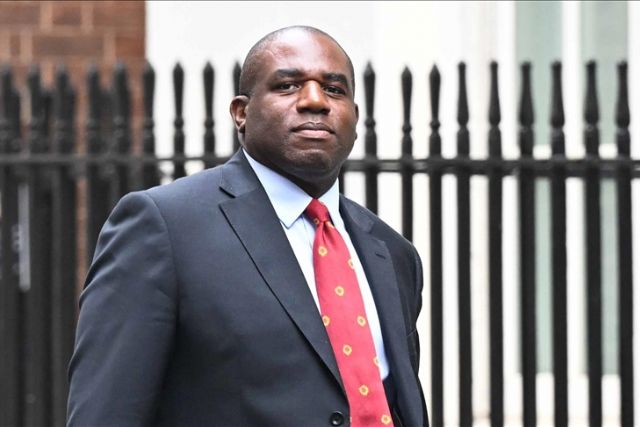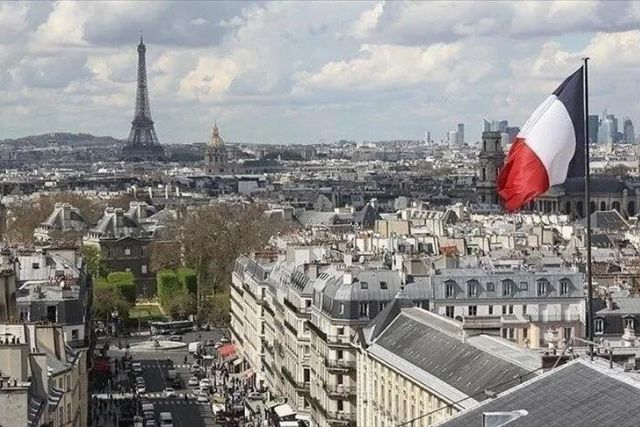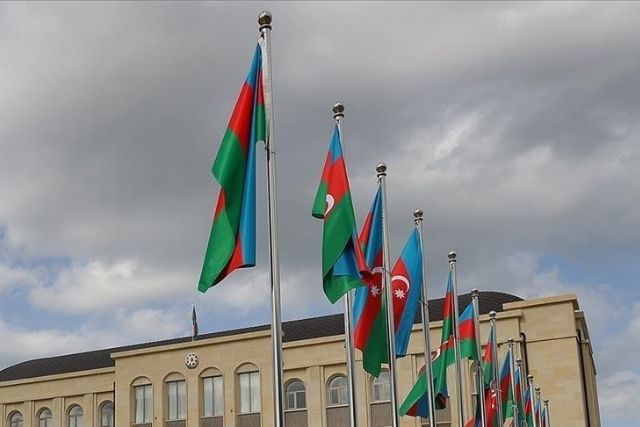Hopeful for justice, persecuted Rohingya want 'dignified return' to Myanmar
Rohingya yearn for home on 6th anniversary of brutal crackdown that forced hundreds of thousands to flee to Myanmar

ISTANBUL
Abdus Shukkur, 37, is shuffling between offices in Germany, hoping to get his asylum application approved in the next few months.
He was one of the roughly 1.2 million Rohingya Muslims forced to flee Myanmar in 2017, when the country's military launched a brutal crackdown targeting the ethnic group in the state of Rakhine.
"I am among those hundreds of thousands of Rohingya people who were forced out during the 2017 exodus forced on us by Burmese military," Shukkur, whose Burmese name is Aung Naing Shwe, told Anadolu over the phone.
As a researcher, the years away from home took him to Bangladesh and then Türkiye, teaching Rohingya students online in international relations and political science, before moving on to Munich.
The Rohingya have been described by the UN as the world's most persecuted people, facing what rights groups have called a genocide.
According to Amnesty International, more than 750,000 Rohingya refugees, mostly women, and children, fled Myanmar and crossed into Bangladesh after Myanmar forces launched a crackdown on the minority Muslim community in August 2017, pushing the number of persecuted people in Bangladesh above 1.2 million.
Since Aug. 25, 2017, nearly 24,000 Rohingya Muslims have been killed by Myanmar's state forces, according to a report by the Ontario International Development Agency (OIDA).
More than 34,000 Rohingya were also thrown into fires, while over 114,000 others were beaten, said the OIDA report, titled Forced Migration of Rohingya: The Untold Experience.
As many as 18,000 Rohingya women and girls were raped by Myanmar's army and police and over 115,000 Rohingya homes were burned down, while 113,000 others were vandalized, it added.
'Can't live in my own country'
Shukkur is confident about getting asylum in Germany.
"Here in Germany, once my (asylum) case is confirmed, I will get every right like any German citizen ... be it education, political (rights), every opportunity," he said.
Back home in Rakhine, Shukkur said, "I don't have any rights. I can't live normally in my own country."
He is currently pursuing a doctoral degree in the field of political science and public administration.
"I have a chance to build my family in Germany, where my children will be able pursue any dream," he said, pessimistic of any chances at normal life for Rohingya who are repatriated to Myanmar.
"Myanmar will not accept us. The reason we were kicked out of our own country was because our native state, Rakhine, is very valuable, with natural resources," he said.
"China also wants to invest there and Myanmar is not willing to take us back."
Those Rohingya who do go back to Myanmar are put in camps upon their return.
"That's no normal life," Shukkur asserted.
Real action needed
While many countries have expressed solidarity with the persecuted community, what is needed now is "real action," according to Nay San Lwin, co-founder of an advocacy group called the Free Rohingya Coalition.
"Most of the countries show solidarity but when it comes to real action, no one comes before," Lwin told Anadolu.
He said Rohingya people are "thankful" for Gambia for filing a genocide case against Myanmar at the International Court of Justice (ICJ) in 2021.
There are at least three international cases going on against Myanmar over persecution of the Rohingya.
Besides the ICJ, a prosecutor at the International Criminal Court (ICC) moved an application against the Southeast Asian nation, despite it not being a member of the court.
The court accepted the prosecutor's argument that Rohingya were victims of forced deportation into Bangladesh, which is a signatory to the Rome Statute, which founded the ICC.
A third case was filed in Argentina by members of the Rohingya community themselves.
All the cases were filed in 2021.
Lwin underlined that the genocide against Rohingya "is still happening," stressing that the community today expects two things: "Justice without delay and dignified repatriation."
The case at the ICJ has seen some progress, Lwin said, adding that if it finds Myanmar guilty of committing genocide against the Rohingya, "then the UN court will issue directions and the country (Myanmar) has to follow them, or else there will be consequences (for Myanmar)."
The ICJ has already issued "provisionary measures" requiring Myanmar authorities to protect Rohingya from genocide.
However, Lwin said the international community and UN court "have to give us protection and send us back, as Myanmar is our homeland."
Rohingya want "dignified repatriations with full rights," he said.
"China brokered a deal for repatriation of Rohingya but this wasn't acceptable because the authorities in Myanmar send us to detention centers. It's worse than camps," Lwin said, echoing Shukkur's fears.
"Dignified return means enjoying full rights, going to our native villages," he added.





